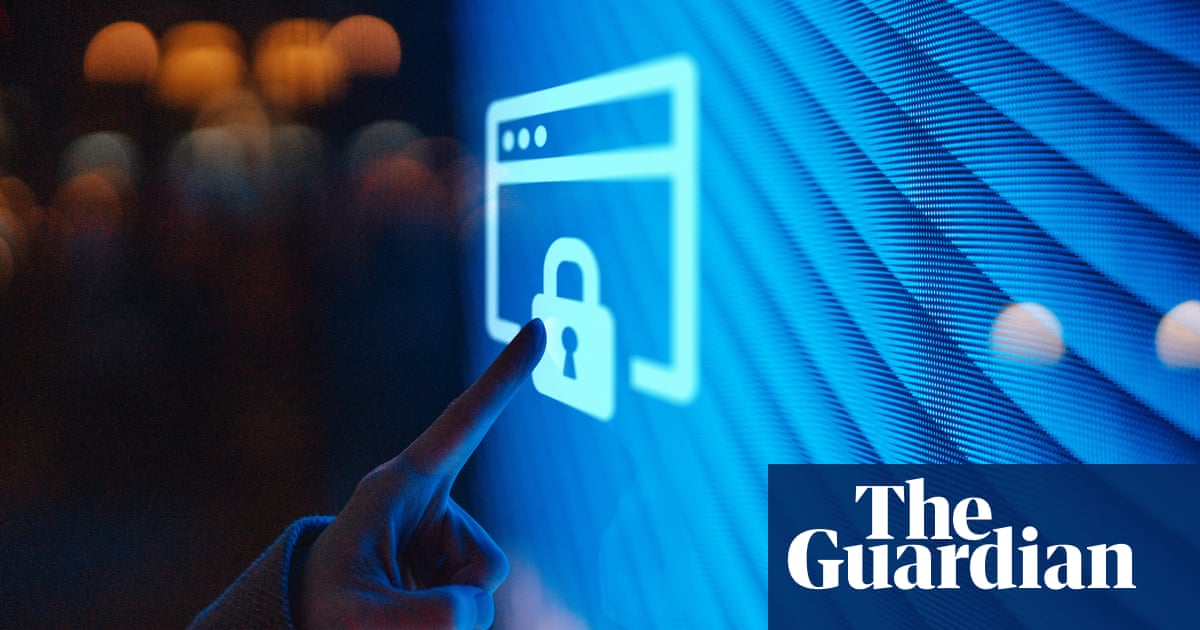
Social media companies must do more to stamp out extremism and assist law enforcement to track criminals, the heads of Australia’s federal police and security agencies have urged.
In comments likely to provoke criticism from some civil and digital rights campaigners, Asio director general Mike Burgess will use a major speech on Wednesday to argue “privacy is important but not absolute”, while AFP commissioner Reece Kershaw believes “there is no absolute right to privacy”.
Burgess will also sound an alarm about artificial intelligence, warning the new technology “is likely to make radicalisation easier and faster”.
In the latest salvo in an expanding dispute between the Australian government and tech companies such as Facebook and X, Burgess and Kershaw will use a joint address to the National Press Club to call for social media companies to give more assistance to law enforcement in certain circumstances, including in cases of potential crimes being discussed on encrypted messaging platforms.
It comes as the federal government and eSafety Commission remain locked in an incendiary standoff with Elon Musk’s X over vision of the Wakeley church stabbing. The Albanese government has also flagged introducing its long-awaited misinformation bill with large fines for tech companies, and is mulling next responses to the news media bargaining code, which would compel social platforms to pay for news content.
Australia’s anti-encryption laws, passed in 2018, give law enforcement agencies the power to issue notices to companies to render assistance, or build a new capability, to help them snoop on suspects in serious criminal investigations such as terror or child sex offences.
Draft notes for speeches from Burgess and Kershaw indicate the law enforcement chiefs do not believe the laws are working as intended.
Burgess, head of Australia’s domestic security agency, will ask tech companies “to make encryption accountable”, indicating that existing federal legislation compelling the targeted unlocking of encrypted messages for investigative purposes is not being heeded by some companies.
“If the threat, evidence, safeguards and oversight are strong enough for us to obtain a warrant, then they should be strong enough for the companies to help us give effect to that warrant. To make encryption accountable,” Burgess will tell the Press Club, according to an advance copy of his speech.
He will say Asio is investigating “a number of Australians” in racist extremist groups using encrypted platforms “to communicate with offshore extremists, sharing vile propaganda, posting tips about homemade weapons and discussing how to provoke a race war”.
“The chatroom is encrypted, so Asio’s ability to investigate is seriously compromised,” Burgess will claim.
“Obviously, we and our partners will do everything we can to prevent terrorism or sabotage, so we are expending significant resources to monitor the Australians involved. Having lawful and targeted access to extremist communications would be much more effective and efficient.”
Asio this month warned in a submission to a Senate inquiry of an uptick in activity from violent extreme-right hate groups “who want to trigger a so called ‘race war’”.
Burgess will say he is “not calling for an end to end-to-end encryption”, nor asking for new laws, powers or resources for Asio.
“I am not asking the government to do anything. I am asking the tech companies to do more. I’m asking them to give effect to our existing powers and to uphold existing laws.
“Without their help in very limited and strictly controlled circumstances, encryption is unaccountable.”
Kershaw is expected to say the AFP and other law enforcement agencies have appealed to social media companies to work with them to keep children safe.
“That includes not transitioning to end-to-end encryption until they can ensure their technology protects against online crime rather than enabling it,” he will say.
“We recognise the role that technologies like end-to-end encryption play in protecting personal data, privacy and cybersecurity, but there is no absolute right to privacy.
“People have the right to privacy just like they have the right not to be harmed. People expect to have their privacy protected just like they expect police to do their job once a crime has been committed against them, or a loved one. That expectation includes being able to respond and bring offenders before the justice system.”
Kershaw will add: “My door is open to all relevant tech CEOs and chairmen, including Elon Musk and Mark Zuckerberg.”
Burgess’ speech will also raise concerns about broader threats from extremism online. He believes artificial intelligence technology is “equal parts hype, opportunity and threat”, warning of some extremist groups offshore asking AI services for advice on building weapons and planning attacks. Asio has concerns AI will increase espionage, foreign interference and disinformation issues.

